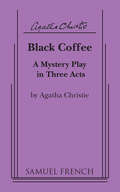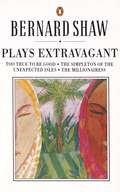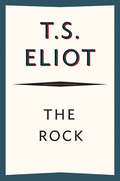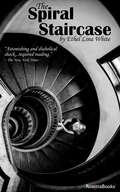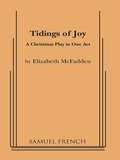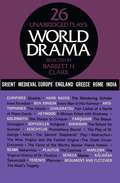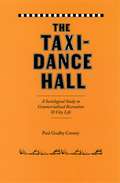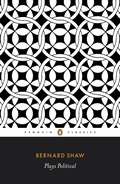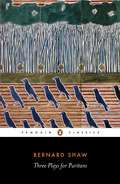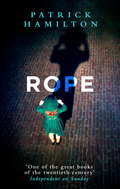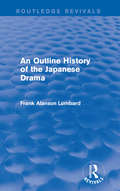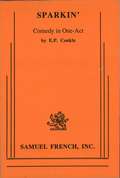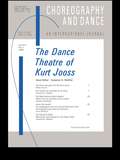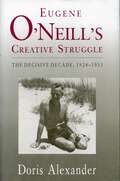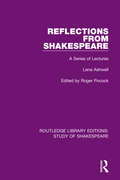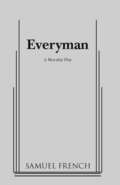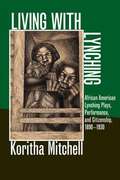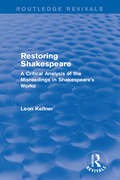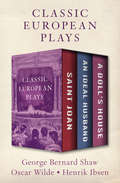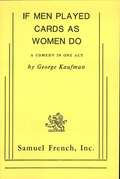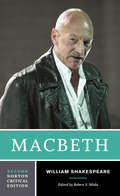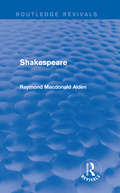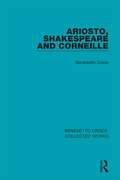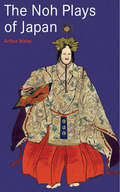- Table View
- List View
Black Coffee
by Agatha ChristieFull Length Play / Dramatic Comedy, Mystery Thriller / 10m, 3f / Interior Set. This little known mystery will surprise and delight Christie fans. The story concerns a physicist named Sir Claude Amory who has come up with a formula for an atom bomb (Black Coffee was written in 1934!). In the first act, Sir Claude is poisoned (in his coffee, naturally) and Hercule Poirot is called in to solve the case. He does so after many wonderful twists and turns in true Christie tradition.
Plays Extravagant: Too True to be Good, The Simpleton of the Unexpected Isles, The Millionairess
by Dan Laurence George Bernard ShawThis is a collection of the plays of George Bernard Shaw that includes "The Millionairess", "Too True to be Good" and "The Simpleton of the Unexpected Isles".
The Rock: A Pageant Play
by T. S. EliotThe Nobel Prize–winning author created the words for this unique play about religion in the twentieth century.The choruses in this pageant play represent a new verse experiment on Mr. Eliot’s part; and taken together make a sequence of verses about twice the length of “The Waste Land.”Mr. Eliot has written the words; the scenario and design of the play were provided by a collaborator, and the purpose was to provide a pageant of the Church of England for presentation on a particular occasion. The action turns upon the efforts and difficulties of a group of London masons in building a church. Incidentally, a number of historical scenes, illustrative of church-building, are introduced. The play, enthusiastically greeted, was first presented in England, at Sadler’s Wells; the production included much pageantry, mimetic action, and ballet, with music by Dr. Martin Shaw.Immediately after the production of this play in England, Francis Birrell wrote in The New Statesman: “The magnificent verse, the crashing Hebraic choruses which Mr. Eliot has written had best be studied in the book. The Rock is certainly one of the most interesting artistic experiments to be given in recent times.” The Times Literary Supplement also spoke with high praise: “The choruses exceed in length any of his previous poetry; and on the stage they prove the most vital part of the performance. They combine the sweep of psalmody with the exact employment of colloquial words. They are lightly written, as though whispered to the paper, yet are forcible to enunciate . . . . There is exhibited here a command of novel and musical dramatic speech which, considered alone, is an exceptional achievement.”
The Spiral Staircase
by Ethel White"Adept at laying one icy finger on the back of your neck" - SpectatorHelen Capel is hired as a live-in lady-help to the Warren family in the countryside. She enjoys the eccentric household and her duties, but her peaceful and simple life is soon disturbed by a series of mysterious murders in the isolated community.As Helen's employer, Professor Sebastian Warren, battens down the hatches and locks all the doors of their remote country house, the eight residents begin to feel safe. But somewhere out there lurks a murderer of young girls. As the murders crawl closer to home, Helen starts to wonder if there really is safety in numbers--and what happens when those numbers start to dwindle?
Tidings of Joy
by Elizabeth McfaddenShort Christmas drama \ 10 boys, 6 girls, extras \ Int. \ A young couple, faced with eviction from their home on Christmas Eve, is befriended by a group of boys and girls from the neighboring church. There is a plea for charity at the Christmas season and a reminder that any home that shelters a baby shares the august beauty of the Nativity story. A beautiful Christmas story that charmingly combines modern characters with the Bible.
World Drama, Volume 1: 26 Unabridged Plays
by Barrett H. ClarkVolume 1 of this two-volume set contains 26 plays including Aeschylus "Prometheus Bound"; Sophocles "Antigone"; Seneca "Medea"; Marlowe, "Dr. Faustus"; Heywood, "A Woman Killed with Kindness"; Johnson, "Every Man in His Humour"; Beaumont and Fletcher "The Maid's Tragedy"; Sheridan "The School for Scandal"; plus plays from the Orient, medieval plays and more.
The Taxi-Dance Hall: A Sociological Study in Commercialized Recreation and City Life
by Cressey Paul G.First published in 1932, The Taxi-Dance Hall is Paul Goalby Cressey’s fascinating study of Chicago’s urban nightlife—as seen through the eyes of the patrons, owners, and dancers-for-hire who frequented the city’s notoriously seedy “taxi-dance” halls. Taxi-dance halls, as the introduction notes, were social centers where men could come and pay to dance with “a bevy of pretty, vivacious, and often mercenary” women. Ten cents per dance was the usual fee, with half the proceeds going to the dancer and the other half to the owner of the taxi-hall. Cressey’s study includes detailed maps of the taxi-dance districts, illuminating interviews with dancers, patrons, and owners, and vivid analyses of local attempts to reform the taxi-dance hall and its attendees. Cressey’s study reveals these halls to be the distinctive urban consequence of tensions between a young, diverse, and economically independent population at odds with the restrictive regulations of Prohibition America. Thick with sexual vice, ethnic clashes, and powerful undercurrents of class, The Taxi-Dance Hall is a landmark example of Chicago sociology, perfect for scholars and history buffs alike.
Plays Political: The Apple Cart, On the Rocks, Geneva
by Dan Laurence George Bernard ShawWhile some of Shaw’s earlier plays are still performed, his later plays, such as the ones in this volume, are barely known. As the collective title indicates, the themes here are political; yet, frankly, it is doubtful how seriously we can now take Shaw as a political thinker. Despite writing in the 1930s, he has little to say of the nature of totalitarianism: although he satirises Fascist dictators in “Geneva”, the satire is disappointingly mild. Neither did Shaw appear to foresee (on the evidence of these plays, at least) the imminent collapse of the British Empire.But it is Shaw the dramatist rather than Shaw the political philosopher who still holds our attention – even in plays as explicitly political as these. He had a sharp intellect and a quirky sense of humour, and his dialogue still glints and sparkles: he couldn’t write a dull line if he tried. No matter how serious the themes he addresses, the crispness of his writing and his lightness of touch still scintillate.Shaw seems, perhaps unfairly, out of fashion nowadays. But even in these lesser-known works, he demonstrates his matchless ability, still undimmed, to provoke and to entertain.
Three Plays for Puritans
by George Bernard ShawShaw believed that theatre audiences of the 1890s deserved more than the hollow spectacle and sham he saw displayed on the London stage. But he also recognized that people wanted to be entertained while educated, and to see purpose mixed with pleasure. In these three plays of ideas, Shaw employed traditional dramatic forms - Victorian melodrama, the history play and the adventure story - to turn received wisdom upside down. Set during the American War of Independence, The Devil's Disciple exposes fake Puritanism and piety, while Caesar and Cleopatra, a cheeky riposte to Shakespeare, redefines heroism in the character of the ageing Roman leader. And in Captain Brassbound's Conversion, an expedition in Morocco is saved from disaster by a lady explorer's skilful manipulation of the truth.
Rope
by Patrick HamiltonThe brilliantly tense play that became Hitchcock's masterpiece, starring James Stewart.Believing themselves to be intellectually superior to their contemporaries, flatmates Brandon and Philip murder their friend David Kentley purely to see if they can get away with it. They then throw a cocktail party, serving food from the top of the trunk where they have hidden David's body. Their guests include both David's father and fiancée, as well as college lecturer Rupert Cadell, who becomes increasingly suspicious as the evening wears on.
An Outline History of the Japanese Drama (Routledge Revivals)
by Frank Alanson LombardStudents of international drama are turning more and more to the study of Japanese drama, desirous to know to what extent its development duplicates or differs from the evolution of drama in other countries. Stimulated by the colour, originality, power, and poetry, they are interested to know more. This title, first published in 1928, traces the general development of the drama of the Japanese. This book will be of interest to students of drama, theatre studies and Asian Studies.
Sparkin'
by E. P. ConkleComedy / 1m, 3f / This is a delightful little comedy of small town Nebraska people and has to do with a timid young man who goes courting, but is unable to come to the point until Granny teaches him how to become a man.
The Dance Theatre of Kurt Jooss
by Suzanne WaltherFirst Published in 1997. Routledge is an imprint of Taylor & Francis, an informa company.
Eugene O'Neill's Creative Struggle: The Decisive Decade, 1924–1933
by Doris AlexanderIn Eugene O'Neill's Creative Struggle, Doris Alexander gives us a new kind of inside biography that begins where the others leave off. It follows O'Neill through the door into his writing room to give a blow-by-blow account of how he fought out in his plays his great life battles—love against hate, doubt against belief, life against death—to an ever-expanding understanding. It presents a new kind of criticism, showing how O'Neill's most intimate struggles worked their way to resolution through the drama of his plays. Alexander reveals that he was engineering his own consciousness through his plays and solving his life problems—while the tone, imagery, and richness of the plays all came out of the nexus of memories summoned up by the urgency of the problems he faced in them. By the way of O'Neill, this study moves toward a theory of the impulse that sets off a writer's creativity, and a theory of how that impulse acts to shape a work, not only in a dramatist like O'Neill but also in the case of writers in other mediums, and even of painters and composers. The study begins with Desire Under the Elms because that play's plot was consolidated by a dream that opened up the transfixing grief that precipitated the play for O'Neill, and it ends with Days Without End when he had resolved his major emotional-philosophical struggle and created within himself the voice of his final great plays. Since the analysis brings to bear on the plays all of his conscious decisions, ideas, theories, as well as the life-and-death struggles motivating them, documenting even the final creative changes made during rehearsals, this book provides a definitive account of the nine plays analyzed in detail (Desire Under the Elms, Marco Millions, The Great God Brown, Lazarus Laughed, Strange Interlude, Dynamo, Mourning Becomes Electra, Ah, Wilderness!, and Days Without End, with additional analysis of plays written before and after.
Reflections From Shakespeare: A Series of Lectures (Routledge Library Editions: Study of Shakespeare)
by Lena AshwellOriginally published in 1926, this title was edited from a series of lectures the author gave to raise money for her theatre group the Lena Ashwell Players. Through her work as a producer the author gained a deeper knowledge of a number of Shakespeare’s plays and in order to support her work gave a number of lectures on "Women in Shakespeare". This title was perhaps the first book by a woman of the profession, appealing to the public for a larger and deeper understanding of Shakespeare: the man, his life, and that group of tragedies in which he fathomed Hell, then scaled the Heavens.
Everyman
by AnonymousThe old English morality play, without intermission. Anonymous. 11 m., 6 f., but these may be taken by all male or female cast. The most beautiful of all the old English religious plays. Especially recommended to churches and schools.
Living with Lynching: African American Lynching Plays, Performance, and Citizenship, 1890-1930
by Koritha MitchellLiving with Lynching: African American Lynching Plays, Performance, and Citizenship, 1890-1930 demonstrates that popular lynching plays were mechanisms through which African American communities survived actual and photographic mob violence. Often available in periodicals, lynching plays were read aloud or acted out by black church members, schoolchildren, and families. Koritha Mitchell shows that African Americans performed and read the scripts in community settings to certify to each other that lynch victims were not the isolated brutes that dominant discourses made them out to be. Instead, the play scripts often described victims as honorable heads of household being torn from model domestic units by white violence. In closely analyzing the political and spiritual uses of black theatre during the Progressive Era, Mitchell demonstrates that audiences were shown affective ties in black families, a subject often erased in mainstream images of African Americans. Examining lynching plays as archival texts that embody and reflect broad networks of sociocultural activism and exchange in the lives of black Americans, Mitchell finds that audiences were rehearsing and improvising new ways of enduring in the face of widespread racial terrorism. Images of the black soldier, lawyer, mother, and wife helped readers assure each other that they were upstanding individuals who deserved the right to participate in national culture and politics. These powerful community coping efforts helped African Americans band together and withstand the nation's rejection of them as viable citizens.
Restoring Shakespeare: A Critical Analysis of the Misreadings in Shakespeare's Works (Routledge Revivals)
by Leon KellnerThe genius of Shakespeare is not always accessible or easily understandable to readers and audiences. Leon Kellner points out that sometimes Shakespeare’s languages does not make sense at all but this is not necessarily because his metaphors are too complex. Rather, the printing of his works is often filled with errors. Originally published in 1925, Kellner’s work explores the reasons and potential mistakes which may account for the unintelligible passages in Shakespeare such as handwriting, abbreviations, and the confusing of pronouns. This title will be of interest to students of English Literature and Linguistics.
Classic European Plays: Saint Joan, An Ideal Husband, and A Doll's House
by George Bernard Shaw Oscar Wilde Henrik IbsenThese three timeless plays showcase the sparkling wit and provocative intellect of some of modern drama&’s greatest playwrights.Saint Joan by George Bernard Shaw: This complex drama depicts the life of Joan of Arc—from her childhood vision calling her to lead the French army against the English in the Hundred Years War through her eventual capture, trial, and burning at the stake. An epilogue depicts a retrial that clears Joan of heresy, declaring her a Christian martyr.An Ideal Husband by Oscar Wilde: In this timeless drawing room comedy, a blackmail scheme forces a married couple to reexamine their moral standards—providing a wry commentary on the hypocrisy of politicians. Carried along by nonstop witty repartee, this is satirical theater at its finest.A Doll&’s House by Henrik Ibsen: This quintessential work of dramatic realism depicts one woman&’s struggle against patriarchal society. The central character&’s rejection of a smothering marriage shocked theatergoers of the late nineteenth century while the play&’s pioneering style set the stage for twentieth century domestic drama.
If Men Played Cards As Women Do
by George S. KaufmanComedy / 4m / Interior / A brilliant satire for men, successfully played in Irving Berlin's "Music Box Revue." The fun is derived from the fact that a group of men at the bridge table speak, behave, and think after the manner in which women are supposed to conduct their game. A good tournament play.
Macbeth (Second Edition) (Norton Critical Editions)
by William Shakespeare Robert S. MiolaA tragedy that evokes both pity and terror—now in a thoroughly revised and updated Norton Critical Edition. The Norton Critical Edition is again based on the First Folio (1623), the only authoritative text of the play. The volume includes a revised introduction and new annotations and textual notes. The Second Edition also includes the innovative feature “The Actors’ Gallery,” which presents famous actors and actresses—among them David Garrick, Sarah Siddons, Ian McKellen, Hira Mikijirô, Patrick Stewart, and Kate Fleetwood—reflecting on their roles in major productions of Macbeth for stage and screen. “Sources and Contexts” provides readers with an understanding of Macbeth’s origins in earlier texts, specifically the works of the Roman playwright Seneca, the Tudor historian Raphael Holinshed, and the medieval drama The Slaughter of the Innocents and the Death of Herod. Contexts for the play include contemporary debates on predestination versus free will (Martin Luther versus Erasmus), witchcraft as fiction or fact (Reginald Scott versus King James I), the ethics of regicide (an Elizabethan homily versus Jan de Mariana, S.J.), and the ethics of equivocation (Henry Garnet, S.J., versus—new to the Second Edition—Sir Edward Coke). Eight carefully chosen essays represent four hundred years of critical and theatrical interpretation. Contributors include Simon Forman, Samuel Johnson, Samuel Taylor Coleridge, Thomas De Quincey, Harry Levin, Stephen Orgel, Peter Holland, and, presenting the latest arguments on the authorship controversy, Gary Taylor. Finally, an engaging new selection of Macbeth’s “Afterlives” includes excerpts from Giuseppi Verdi’s Macbeth and related letters, Eugene Ionesco’s Macbett (1972), Bill Cain’s Equivocation (2009), and more. This edition also provides a list of online and print resources.
Shakespeare: From The Quarto Of 1609, With Variorum Readings And Commentary (Routledge Revivals)
by Raymond Macdonald AldenThis fascinating title, first published in 1922, presents a detailed overview of the life and works of Shakespeare. Alden first considers Shakespeare’s Elizabethan context, alongside exploring the Classical and Italian foundations, political theories, concepts and theatrical trends that influenced his works. Next, a comprehensive biography provides insight into Shakespeare’s probable education, relationships and contemporaries. The final sections are devoted to the genres into which Shakespeare’s works have been categorised, with full analyses of and backgrounds to the poems, histories, comedies and tragedies. An important study, this title will be of particular value to students in need of a comprehensive overview of Shakespeare’s life and works, as well as the more general inquisitive reader.
Ariosto, Shakespeare and Corneille (Collected Works)
by Benedetto CroceOriginally published in 1921 this volume consists of the first of Croce’s literary criticisms to be published in English and as well as a section on Shakespeare, it contains unique essays on Ariosto and Corneille which together inaugurated a new era in literary criticism. The essays are based on Croce’s Theory of Aesthetic - a theory which to many is the only one that completely explains the problem of poetry and the fine arts - and as a result are profound and suggestive.
The Noh Plays of Japan
by Arthur WaleyFirst published in 1921, The Noh Plays of Japan has been justly famous for more than three-quarters of a century and established the Noh play for the Western reader as beautiful literature. It contains translations of nineteen plays and summaries of sixteen more.
The Noh Plays of Japan
by Arthur WaleyFirst published in 1921, The Noh Plays of Japan has been justly famous for more than three-quarters of a century and established the Noh play for the Western reader as beautiful literature. It contains translations of nineteen plays and summaries of sixteen more.
